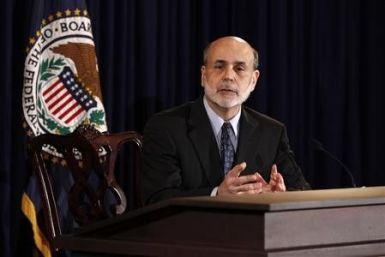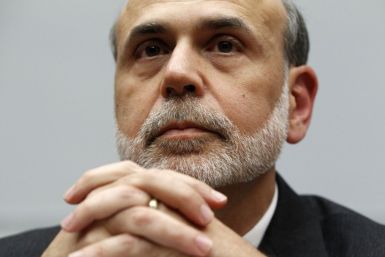Consumer sentiment deteriorated in early July to the lowest level since March 2009 on increasing pessimism over falling income and rising unemployment, a survey released on Friday showed.
U.S. consumer prices fell 0.2 percent in June, the first monthly fall in a year, with the annual inflation rate unchanged at 3.6 percent, still the highest the Labor Department said.
The US economy is at an inflection point after the end of the second round of Quantitative Easing (QE2). Two rounds of monetary and fiscal stimulus since 2008 have had only limited impact on growth or unemployment. The question is,'What next?' will there be another round of monetary and fiscal policy easing? Analysts at American Enterprise Institute for Public Policy Research (AEI) are of the opinion that fiscal and monetary policies have reached their limits.
Consumer prices fell slightly more than expected in June to post their biggest drop in a year on weak gasoline costs, but underlying inflation pressures remain elevated.
Federal Reserve Chairman Ben Bernanke warned on Thursday that overzealous cuts to government spending in the short term could derail a shaky recovery and said a debt default could wreak financial havoc.
U.S. Federal Reserve Chairman Ben Bernanke said on Wednesday that the Fed was prepared to take action to reverse any slowdown in the economic recovery, including another round of quantitative easing.
The Federal Reserve is ready to ease monetary policy further if economic growth and inflation slow much more, Chairman Ben Bernanke said on Wednesday, giving a boost to the bruised stock market.
Wall Street stocks rebounded from a three-day selloff on Wednesday as comments from Federal Reserve Chairman Ben Bernanke raised hopes for further stimulus of the U.S. economy if needed.
Federal Reserve Chairman Ben Bernanke said on Wednesday the central bank is ready to ease monetary policy further if the economy weakens and inflation moves lower, suggesting policymakers are actively mulling further stimulus.
Chairman Ben S. Bernanke's Semiannual Monetary Policy Report to the Congress Before the Committee on Financial Services, U.S. House of Representatives, Washington, D.C. July 13, 2011
Wall Street stocks rose on Wednesday, snapping a three-day losing streak, after Federal Reserve Chairman Ben Bernanke suggested policymakers are actively considering further stimulus for the economy if it is needed.
The head of the world's most powerful central bank said Wednesday a third round of quantitative easing, QE3, may be up ahead, if the tepid U.S. economic recovery doesn't improve. However, Fed Chairman Ben Bernanke, in Congressional testimony, underscored that the Fed is also considering other options -- or a monetary tightening -- if the recovery gains strength.
China's economy grew faster than expected in the second quarter, easing fears of a hard landing and strengthening Beijing's resolve to fight persistently high inflation.
China's economy slowed less sharply than expected in the second quarter and Beijing said corralling inflation remained its top priority even though a complex and volatile global economy clouded the outlook.
Some Federal Reserve officials believe further monetary policy easing could be needed if the recovery remains too sluggish to cut the stubbornly high U.S. jobless rate and if inflation eases as expected, minutes of the Fed's last meeting show.
Beijing will continue to put taming inflation at the top of its agenda by keeping a prudent monetary policy stance, but it will try to avoid any big swings in economic growth caused by excessive tightening, Chinese Premier Wen Jiabao said in comments published on Tuesday.
To date, China has been wary of leaning heavily on interest rate rises to combat inflation. But to tackle what Beijing just called its most prominent economic problem, that's likely to change.
The Bank of Japan is expected keep monetary policy on hold and present a brighter view on the economy on Tuesday, encouraged by a rebound in factory output and increasing signs that the recovery from the devastating March earthquake is broadening.
China's premier and the country's central bank governor vowed on Monday to prevent stubbornly high inflation from upending the economy, reinforcing expectations for more increases in interest rates and bank reserve requirements.
Asia's emerging market central banks will need to keep ratcheting up interest rates well after inflation peaks to prevent higher prices from seeping into corners of the economy where they are much harder to dislodge.
The June jobs report was horrible. The US economy only added 18,000 jobs, the lowest in 9 months, and the unemployment rate climbed to 9.2 percent.
The world's largest economy continued to create jobs a tepid rate in June, adding just 18,000 jobs, when economists were expected a gain of about 105,000. The sub-par job growth rate increases concern that the economy may enter a double-dip recession.




























